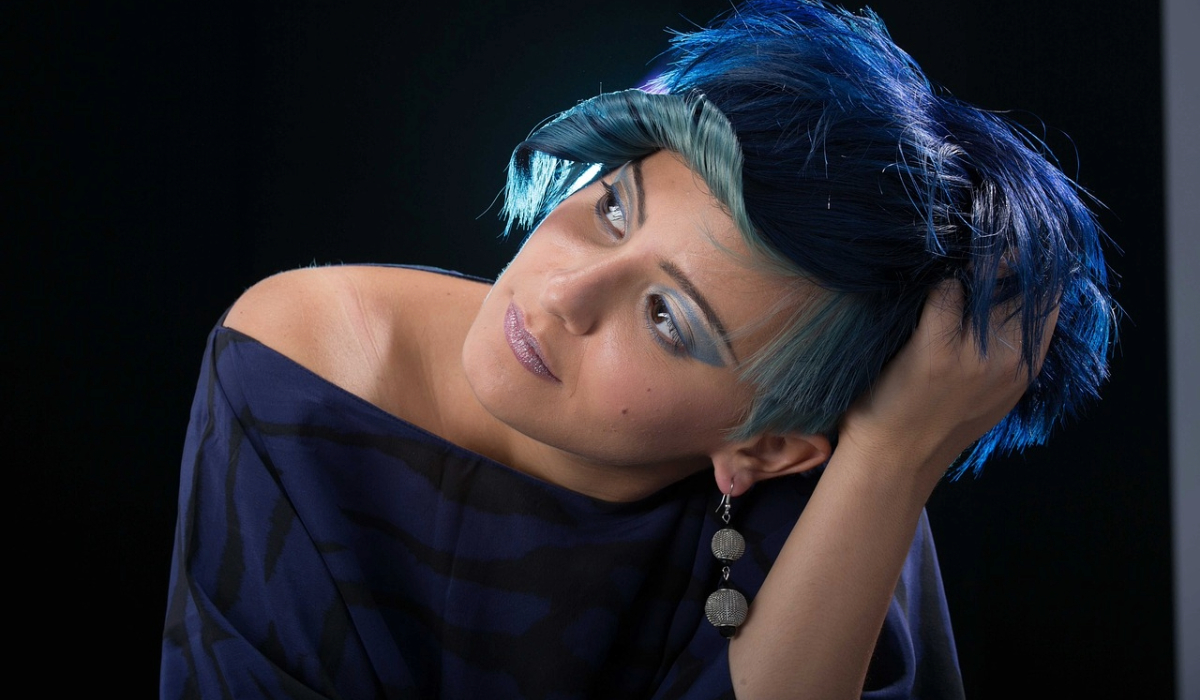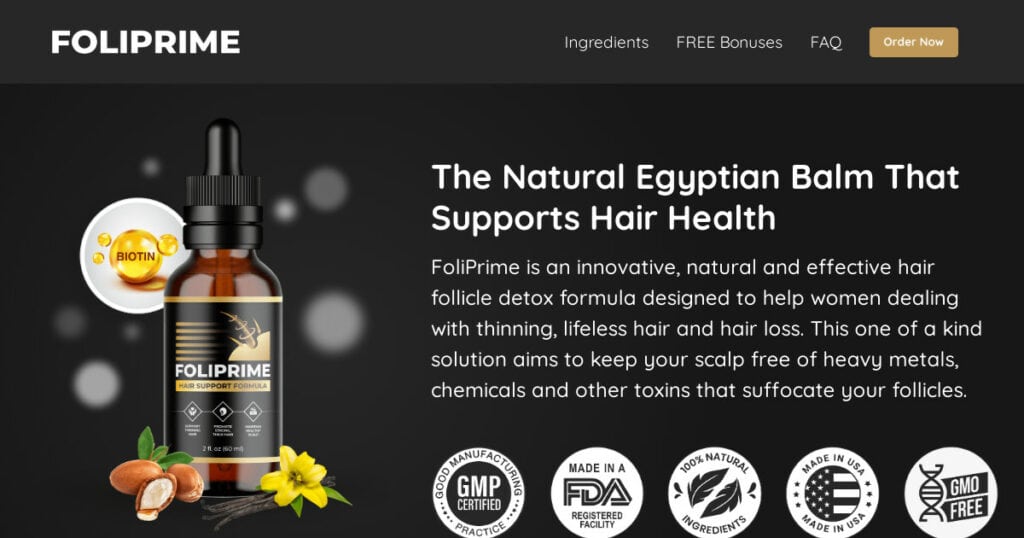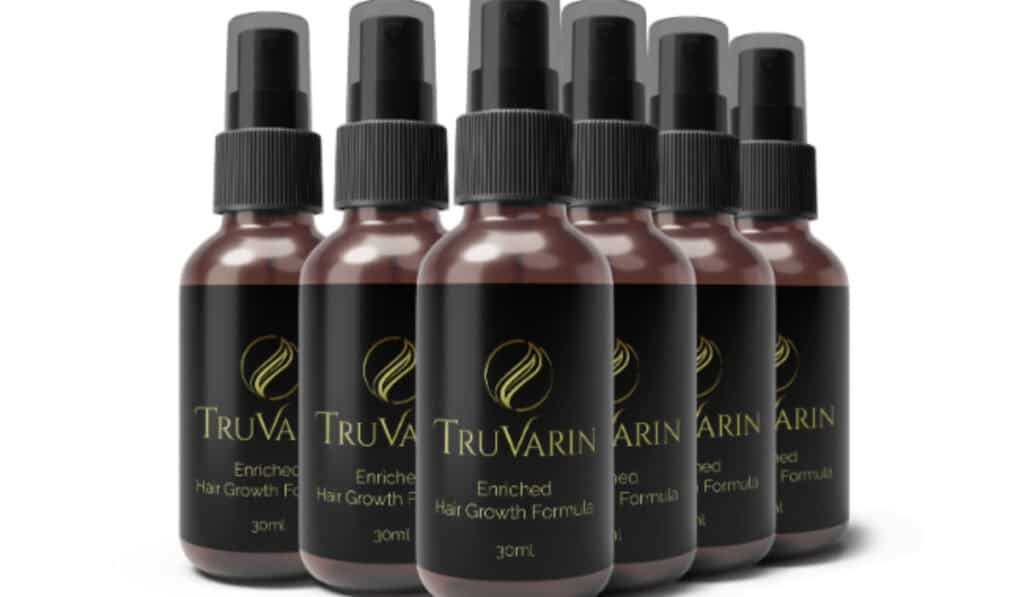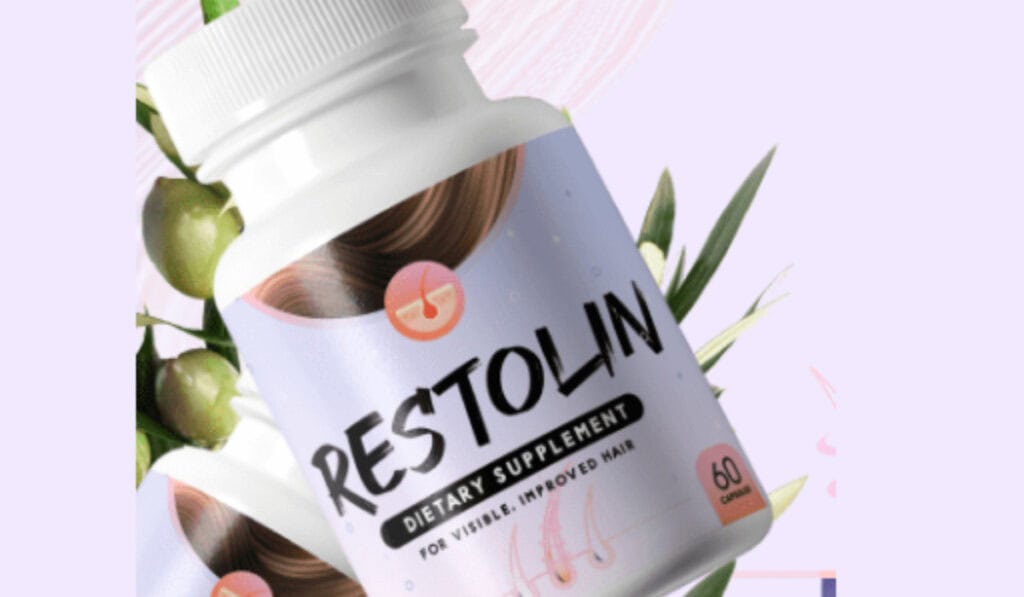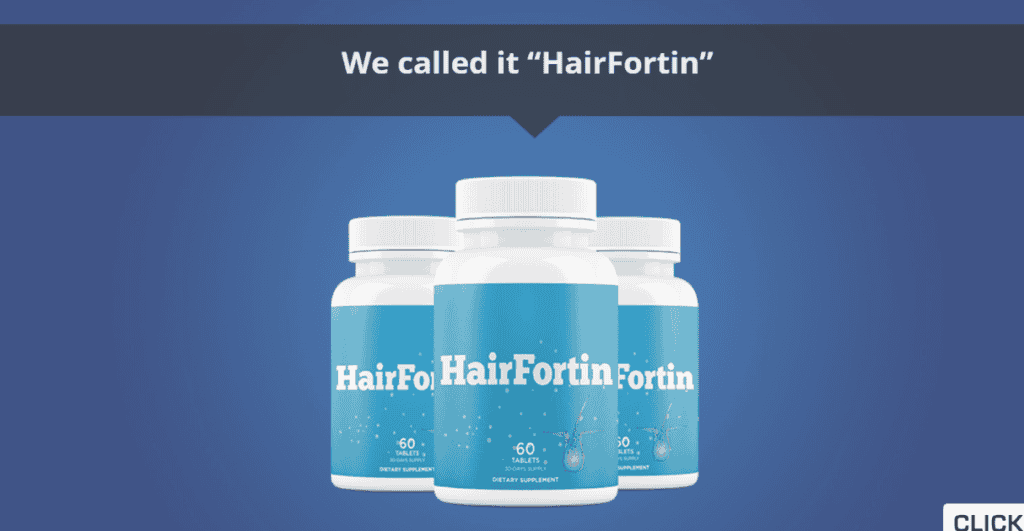Unlocking the Secrets to Luxurious Locks
Healthy hair doesn’t just happen by chance; it’s the result of proper nourishment and care. Just like your body needs a balanced diet to function optimally, your hair requires specific vitamins and minerals to maintain its strength, shine, and overall health. Ignoring these essential nutrients can lead to dull, weak, and thinning hair.
Among the plethora of nutrients vital for hair health, minerals play a crucial role. They work tirelessly behind the scenes, ensuring your hair follicles get the nourishment they need to produce strong and vibrant hair strands. From iron that helps carry oxygen to your hair roots to zinc that aids in hair repair and growth, these minerals are the unsung heroes of hair care.
But it’s not just about loading up on any mineral. Balance is key, as an excessive intake of certain minerals can actually harm your hair. It’s about finding the right mix and ensuring your diet supports your hair’s needs. With the correct balance, you can unlock the secret to luxurious locks that not only look good but are a sign of your overall well-being.
Understanding the Essentials of Hair Health
Maintaining healthy hair goes beyond the surface. It’s deeply connected to your overall health, including the efficiency of your immune system and the nutrients you consume. Vitamins and minerals, such as vitamin B9, play significant roles in this intricate system, directly impacting the health and appearance of your hair.
The Foundations of Hair Vitality
The foundation of hair vitality is a robust immune system that supports and protects the scalp environment, paving the way for healthy hair growth. A well-functioning immune system ensures your hair follicles can thrive, contributing to the overall vitality of your hair.
The Role of Vitamins in Nourishing Hair Follicles
Vitamins are the building blocks that support every aspect of hair health, from the roots to the tips. They help in nourishing hair follicles, ensuring that each strand of hair grows out strong and healthy. For instance, antioxidants fight against damage from free radicals, maintaining the integrity of your hair follicles.
Moreover, certain vitamins play specific roles, such as facilitating blood circulation to the scalp, which is essential for bringing nutrients to the hair roots. This complex interaction of vitamins not only supports the existing hair but also promotes the growth of new, healthy hair.
Essential Minerals for Strengthening Hair Strands
Minerals like iron, zinc, and magnesium are vital for the structural integrity of your hair strands. Iron helps in the transportation of oxygen to your scalp, nourishing your hair from the roots. Zinc plays a critical role in hair tissue growth and repair, while magnesium is essential for creating strong hair strands by contributing to protein synthesis.
The synergy between these minerals ensures that your hair is not only growing but is strong, resilient, and less prone to breakage. A diet lacking in these essential minerals can lead to weak, brittle hair, or even hair loss, underscoring the importance of incorporating mineral-rich foods into your daily diet.
The Impact of Nutrients on Hair Texture and Growth
The texture and growth of your hair are significantly influenced by the nutrients you consume. A well-balanced diet rich in essential vitamins and minerals can transform the health of your hair, promoting a texture that is smooth and a growth rate that is optimal. This highlights the direct link between nutrient intake and hair health.
The Science Behind Hair Supplements
While a balanced diet is crucial for hair health, sometimes it’s not enough to meet the specific nutritional needs of your hair. This is where hair supplements come into play. They are designed to fill the nutritional gaps in your diet, providing your hair with the specific vitamins and minerals it needs to thrive.
However, it’s important to approach supplements with knowledge and caution. Not all supplements are created equal, and some may contain more than the recommended daily intake of certain nutrients, which can be counterproductive. Understanding the science behind these supplements can help you make informed decisions about which ones are right for your hair.
Natural vs. Supplemental Nutrients for Hair
When it comes to nourishing your hair, there’s often a debate between relying on natural sources of nutrients or turning to supplements. While natural sources are always the preferred method, providing a holistic approach to nutrition, supplements can be beneficial in certain situations where dietary restrictions or deficiencies are present.
Ultimately, the choice between natural and supplemental nutrients should be based on individual needs, dietary habits, and specific hair health goals. Consulting with a healthcare professional can help you determine the best approach for incorporating these nutrients into your routine for optimal hair health.
Vitamin C: The Antioxidant Powerhouse
Vitamin C is a powerful antioxidant that fights against oxidative stress, which can damage your hair, making it weak and brittle. Including natural sources of Vitamin C like citrus fruits and Brussels sprouts in your diet can help protect your hair and improve its overall health.
Enhancing Iron Absorption for Hair Strength
To have strong and healthy hair, your body must absorb iron effectively, and Vitamin C plays a crucial role in this process. By consuming Vitamin C-rich foods along with iron-rich foods, you help your body absorb iron more efficiently, which is vital for hair strength and growth.
Iron is an essential mineral that supports healthy hair, and without enough Vitamin C, your risk of developing iron deficiency increases. This deficiency can lead to hair loss. So, it’s important to maintain a balanced diet that includes both nutrients to keep your hair looking its best.
Sources and Daily Recommendations
Natural sources of Vitamin C include citrus fruits, strawberries, red peppers, and Brussels sprouts, among others. For most adults, the recommended daily intake of Vitamin C is 65 to 90 milligrams per day. By incorporating these foods into your diet, you can easily meet your daily Vitamin C needs and support healthy hair.
Remember, while Vitamin C supplements are available, getting this critical vitamin from food sources ensures you receive other beneficial nutrients that also support hair health. Always aim to meet your Vitamin C intake primarily through your diet.
Vitamin D: The Sunshine Vitamin
Vitamin D plays a crucial role in maintaining healthy hair follicle cycling, a process important for hair growth. Unfortunately, Vitamin D deficiency is common, but you can increase your vitamin D levels through diet, fortified foods, and safe sunlight exposure.
Its Role in Hair Follicle Cycling
Vitamin D is essential for the creation of new hair follicles, tiny pores from which new hair can grow. This vitamin supports healthy hair follicle cycling, which can lead to less shedding and fuller hair. Without enough Vitamin D, your hair may not be able to regenerate as effectively, leading to thinner hair or slowed growth.
For those struggling with hair loss, ensuring adequate Vitamin D intake can be a step in the right direction. Vitamin D supplements might be recommended if you’re not getting enough from sunlight or your diet, but always consult with a healthcare provider first.
Achieving Adequate Levels Through Diet and Sunlight
Increasing your Vitamin D intake can be as simple as spending more time in the sun, eating more fortified foods, and including natural sources like fish, egg yolks, and beef liver in your diet. However, the amount of sunlight exposure needed can vary greatly depending on your location, skin tone, and the time of year.
If you’re concerned about your Vitamin D levels, consider having them checked by a healthcare provider. They may recommend Vitamin D supplements as a way to ensure you’re getting enough of this critical vitamin to support healthy hair growth.
Vitamin E: The Protector
Vitamin E is known for its antioxidant properties, which help protect your body and hair from oxidative stress. This stress can damage your hair, and increasing your intake of Vitamin E can help guard against this damage, keeping your hair healthy and strong.
Guarding Against Oxidative Stress
Oxidative stress affects your hair’s health and appearance, leading to issues like premature greying and hair loss. Vitamin E combats this stress, contributing to hair’s elasticity and shine. Including Vitamin E-rich foods in your diet is a natural way to protect your hair.
Sources of Vitamin E include nuts, seeds, spinach, and avocados. Incorporating these foods into your meals can help you meet your daily Vitamin E needs, promoting hair strength and protecting against damage from the environment and aging.
Top Foods and Supplements for Hair Care
For optimal hair health, focus on foods high in Vitamin E such as almonds, spinach, sweet potatoes, and avocados. These foods not only support hair strength but also contribute to overall health, thanks to their nutrient-rich profiles.
If you’re considering Vitamin E supplements for hair care, it’s important to talk to a healthcare provider. They can recommend the right dosage to meet your needs without exceeding the safe upper intake levels, ensuring that your hair and health benefit from the right balance.
Minerals That Matter in Hair Care
While vitamins play a crucial role in maintaining healthy hair, minerals like iron, zinc, and magnesium also contribute significantly. These minerals support various bodily functions critical to hair health, including oxygen transport, protein synthesis, and cell repair.
Iron: The Oxygen Carrier
Iron carries oxygen to your hair follicles, which is essential for their growth and vitality. Low levels of iron can lead to iron deficiency anemia, which is a common cause of hair loss. Eating foods rich in iron can help maintain healthy hair growth.
Preventing Hair Loss through Adequate Iron Intake
Androgenetic alopecia, also known as pattern baldness, can sometimes be linked to vitamin and mineral deficiencies, including iron. Maintaining adequate levels of iron through dietary intake is key to preventing hair loss. Foods rich in iron, like spinach, red meat, and lentils, should be a regular part of your diet.
Adequate iron intake supports overall health and helps prevent conditions like iron deficiency anemia, which can lead to a receding hairline and hair loss. If you’re experiencing hair loss, it’s important to consider your iron levels as part of your hair care strategy.
Identifying and Addressing Iron Deficiency
If you suspect you have an iron deficiency, it’s crucial to seek medical advice. A healthcare provider can recommend blood tests to diagnose the condition and may suggest dietary adjustments or supplements to increase your iron levels.
Eating foods rich in Vitamin C can enhance your body’s ability to absorb iron, so including citrus fruits and leafy greens in your diet can be beneficial. In some cases, iron supplements may be necessary, but they should only be taken under the guidance of a healthcare provider.
Zinc: The Regulator
Zinc plays a key role in hair tissue growth and repair. It also helps keep the oil glands around the follicles working properly. Zinc deficiency can lead to hair loss, which is why maintaining adequate zinc intake is crucial for healthy hair.
Balancing Hair Growth and Repair
Ensuring your diet includes enough zinc can help balance hair growth and repair, preventing hair loss. Foods rich in zinc include meat, shellfish, legumes, and seeds. By incorporating these foods into your meals, you can help maintain the health of your hair and scalp.
Zinc supports the immune system and plays a role in cell division, both of which are important for healthy hair growth. If you’re concerned about your zinc intake, consider speaking with a healthcare provider who can offer advice on dietary choices or supplements to ensure your hair receives the support it needs.
Zinc-Rich Foods vs. Supplementation
When it comes to boosting your hair’s health, zinc plays a crucial role. You might wonder whether it’s better to get this mineral from foods or supplements. Zinc-rich foods, such as spinach, pumpkin seeds, and beef, provide a natural balance of nutrients that your body can easily absorb. These sources of zinc not only support hair growth but also enhance your overall health.
Supplementation, on the other hand, can help if your diet lacks sufficient zinc. However, it’s important to approach zinc supplements with caution to avoid exceeding the recommended daily intake, as too much zinc can lead to adverse effects. Always consult with a healthcare professional before starting any supplement regimen to ensure it’s suitable for your health needs.
Magnesium: The Catalyst
Magnesium plays a role in over 300 enzymatic reactions in the body, including protein synthesis which is essential for hair growth. This mineral helps to strengthen the hair follicles and improves the overall health of your hair. Including magnesium-rich foods in your diet, like almonds, spinach, and whole grains, can help maintain healthy hair.
Its Role in Protein Synthesis and Hair Growth
Magnesium’s involvement in protein synthesis is crucial for hair growth. This process is vital for creating keratin, a type of protein that makes up most of your hair. Without adequate magnesium, your body might struggle to produce enough keratin, leading to weaker hair strands and slower hair growth.
Additionally, magnesium helps to activate different vitamins and minerals essential for hair growth, such as vitamin D and calcium. This synergistic effect ensures that your hair follicles receive all the nutrients they need to produce strong, healthy hair. Ensuring you get enough magnesium can thus significantly impact the vitality and growth rate of your hair.
Natural Sources of Magnesium for Daily Consumption
Incorporating magnesium into your diet is straightforward with a variety of delicious options. Green leafy vegetables like spinach and kale are excellent sources, as are nuts and seeds, particularly pumpkin seeds and almonds. Whole grains and legumes also offer a healthy dose of magnesium, supporting not just hair health but overall well-being.
Besides these, snacking on dark chocolate can be a tasty way to boost your magnesium intake. Just be mindful of the sugar content. Balancing these natural sources of magnesium with a well-rounded diet can help you maintain the right levels of this essential mineral for healthy hair growth and texture.
Beyond Vitamins and Minerals: Other Essentials
While vitamins and minerals are fundamental for hair health, other nutrients also play a vital role. Omega-3 fatty acids, for instance, are crucial for maintaining a healthy scalp and lustrous hair. A balanced diet that includes a variety of nutrients, alongside proper hydration, supports not only your hair’s appearance but its strength and growth as well.
Omega-3 Fatty Acids: The Nourishers
Omega-3 fatty acids are essential for healthy hair growth. They nourish the hair follicles, helping to stimulate growth and prevent a receding hairline. These fats are also important for maintaining the health of the scalp, reducing inflammation that can lead to hair loss. Incorporating omega-3s into your diet through fish or plant-based sources can thus significantly impact your hair’s health and appearance.
Enhancing Scalp Health and Hair Luster
Healthy scalp conditions are foundational for healthy hair growth. Omega-3 fatty acids help to moisturize the scalp, combating dryness and dandruff, which can hinder hair growth. A well-nourished scalp fosters a conducive environment for hair follicles to produce strong, vibrant hair.
Moreover, the natural oils produced by a healthy scalp, enriched with omega-3s, give your hair a noticeable luster and shine. Regular consumption of omega-3 rich foods, such as salmon, flaxseeds, and walnuts, can significantly contribute to achieving that sought-after glossy hair look.
Fish vs. Plant-Based Sources
Fish, particularly fatty varieties like salmon, mackerel, and sardines, are excellent sources of omega-3 fatty acids. They provide a direct form of EPA and DHA, two types of omega-3s that are easily utilized by the body, promoting healthy hair growth and a vibrant scalp.
For those following a plant-based diet, flaxseeds, chia seeds, and walnuts are valuable sources of ALA, another type of omega-3 fatty acid. While the body needs to convert ALA into EPA and DHA, incorporating these plant-based sources can still support hair health for men and women alike. Balancing your intake of omega-3s, whether from fish or plant-based sources, is key to optimizing hair vitality.
Protein: The Building Block
Protein is among the essential nutrients your hair needs to stay strong and healthy. Hair is primarily made up of keratin, a type of protein. Thus, a diet lacking in adequate protein can lead to weak, brittle hair, or even hair loss. Ensuring you consume enough protein from a variety of sources supports the structure and strength of your hair strands.
Ensuring Adequate Protein for Hair Strength
A sufficient intake of protein is critical for hair strength and growth because hair follicles are mostly made of protein. Foods rich in protein, such as eggs, poultry, fish, and legumes, provide the building blocks your hair needs to grow strong and healthy. Including these foods in your diet can help prevent hair breakage and loss.
It’s important to consider the quality of the protein sources as well. Amino acids found in complete proteins are especially beneficial for hair growth. By consuming a variety of protein-rich foods, you ensure your hair gets all the essential amino acids it needs for optimal health and strength.
Balancing Animal and Plant Proteins in Diet
Incorporating both animal and plant proteins into your diet offers the best of both worlds for hair health. Animal proteins provide complete amino acids, making them a direct source of the nutrients your hair needs. On the other hand, plant proteins, such as lentils, beans, and nuts, contain additional vitamins and minerals that support hair growth.
Creating a balanced diet that includes a variety of protein sources can cater to your hair’s nutritional needs. This approach ensures that you’re not only getting the essential amino acids but also benefiting from the diverse range of nutrients found in both animal and plant proteins.
Implementing a Hair-Healthy Lifestyle
Adopting a hair-healthy lifestyle involves more than just focusing on vitamins or minerals; it’s about creating a balanced diet that includes all the nutrients your hair needs. Alongside a healthy diet, staying hydrated, reducing stress, and avoiding harsh hair treatments can significantly contribute to the strength and vitality of your hair.
Choosing the Right Hair Supplements
While a healthy diet is the foundation for strong, vibrant hair, supplements can help fill any nutritional gaps. However, it’s crucial to choose the right supplements that meet your specific needs. Consulting with a healthcare professional can help you make informed decisions and select supplements that are both safe and effective.
Evaluating Quality and Efficacy
When selecting hair supplements, it’s essential to evaluate their quality and efficacy. Look for products that have undergone third-party testing and are backed by scientific research. Reviews and testimonials can also provide insights into a supplement’s effectiveness. However, remember that what works for one person may not work for another, underscoring the importance of personalized advice.
Additionally, consider the form of the supplement, such as tablets, capsules, or liquids, and choose one that you’re comfortable taking regularly. The right supplement should not only be effective but also fit seamlessly into your daily routine.
Customizing Your Supplement Regimen
Customizing your supplement regimen to fit your specific hair needs and health conditions is vital. Not all hair issues stem from the same nutritional deficiencies, so it’s important to target your approach. For example, if you’re experiencing hair thinning due to iron deficiency, focusing on iron supplements, alongside a diet rich in iron, might be beneficial.
It’s also advisable to periodically review and adjust your supplement intake based on changes in your hair health and overall well-being. This proactive approach ensures that your supplement regimen remains aligned with your current health needs, supporting optimal hair growth and vitality.
Dietary Adjustments for Maximal Impact
Making the right choices in your diet can significantly impact your hair’s health and growth. Emphasizing whole foods over processed options and staying hydrated are key steps you can take to ensure your hair gets the nutrients it needs.
Whole Foods over Processed: A Hair-Healthy Choice
Choosing whole foods such as fruits, vegetables, and lean proteins provides your hair with the essential vitamins and minerals it needs to thrive. Leafy greens, in particular, are packed with B vitamins which are crucial for healthy hair growth. These foods deliver nutrients more effectively than processed foods, which often lack the necessary components for nurturing your hair.
Processed foods not only miss out on essential nutrients but can also contain harmful additives that may damage your hair health over time. By focusing your diet on whole foods, you’re giving your hair the building blocks it needs for strength, shine, and vitality.
Hydration: The Key to Enhancing Nutrient Absorption
Drinking enough water is essential for your overall health and plays a significant role in how effectively your body absorbs nutrients. Proper hydration ensures that the vitamins and minerals from your diet can be efficiently delivered to your hair follicles. This, in turn, can lead to healthier, more resilient hair strands.
Without adequate hydration, your hair can become dry, brittle, and more susceptible to breakage. Aim for at least eight glasses of water a day to help maintain optimal nutrient absorption and support your hair’s natural growth processes.
The Timeline to Healthier Hair: Setting Realistic Expectations
Improving the health of your hair is a journey that requires patience and consistency. Understanding the timeline for seeing changes can help set realistic expectations and keep you motivated.
While immediate improvements might not be visible, your commitment to a hair-healthy lifestyle will pay off over time. Knowing what to expect and when can help you stay the course and appreciate the gradual enhancements in your hair’s condition.
Immediate Changes vs. Long-Term Results
Some changes, like increased shine or a healthier scalp, can be noticed relatively quickly after improving your diet and hydration habits. However, significant changes in hair strength, thickness, and growth rate may take longer to observe.
What to Expect in the First Month
In the first month of adopting a hair-healthy lifestyle, you might notice your hair appears shinier and your scalp feels healthier due to better hydration and nutrient intake. These are positive signs that your body is responding well to the changes you’ve made.
However, don’t be discouraged if you don’t see dramatic changes in hair growth or texture immediately. These aspects take time to improve as your hair grows on average about half an inch per month.
Marking Progress: Six Months and Beyond
By the six-month mark, you should start to see more noticeable differences in your hair’s growth and overall health. Thanks to the consistent intake of essential vitamins and minerals, along with proper hydration, you might find your hair growing faster, feeling thicker, and experiencing less breakage.
Continuing your hair-healthy habits beyond six months will further enhance the quality and appearance of your hair. Remember, the journey to healthier hair is ongoing, and maintaining your regimen is key to achieving and sustaining results.
Expert Insights and Closing Thoughts
As you embark on your journey to healthier hair, keep in mind the importance of patience and dedication. The right diet, hydration, and care practices can transform your hair, but it requires time.
When to Consult a Professional
If you’re not seeing the results you hoped for or if you’re experiencing significant hair loss, it’s important to consult a healthcare professional. They can help identify any underlying issues and guide you on the right path.
Identifying Signs of Nutritional Deficiencies
Nutritional deficiencies can significantly affect your hair’s health. Signs to look out for include excessive hair shedding, a lackluster appearance, and slowed growth. These symptoms may indicate that your diet is lacking in essential for healthy hair growth nutrients.
Addressing these deficiencies early on, through either dietary adjustments or supplements, can help reverse the negative effects on your hair. Don’t hesitate to seek advice from a nutritionist or healthcare provider to ensure your diet includes all the necessary components for healthy hair.
The Role of Medical Interventions in Severe Cases
In some cases, dietary changes and improved hydration may not be enough to address hair health issues. Medical interventions, such as medication or topical treatments, might be necessary to treat underlying conditions affecting your hair.
Consulting with a dermatologist or trichologist can provide insights into effective treatments for your specific situation. These professionals can help identify the root cause of your hair problems and recommend the best course of action.
Final Words: Embracing a Holistic Approach
Healthy hair is a reflection of your overall well-being. A holistic approach that includes a balanced diet, proper hydration, and appropriate care practices is key to achieving the luxurious locks you desire.
The Synergy of Diet, Lifestyle, and Supplements
For optimal hair health, it’s crucial to understand the synergy between diet, lifestyle, and supplements. Ensuring your body receives the essential vitamins and minerals through food and, if necessary, supplements, can provide your hair with the nutrients it needs to grow strong and healthy.
Adding regular exercise and stress-management techniques into your routine can further enhance your hair’s health by improving blood flow and reducing stress, which are both beneficial for hair growth.
Commitment to Ongoing Hair Care and Wellness
Committing to ongoing hair care and wellness practices is essential for maintaining the health of your hair over time. This includes not only dietary and hydration habits but also gentle hair care routines that minimize damage.
Remember, achieving healthier hair is a continuous journey, not a destination. By staying committed to your hair-healthy lifestyle, you can enjoy the benefits of stronger, shinier, and more vibrant hair for years to come.
A Luxurious Locks: Embracing the Journey to Healthier Hair
Embarking on the journey to healthier hair means understanding the crucial role of vitamins and minerals in your hair care routine. Just like a garden needs the right balance of nutrients to flourish, your hair requires a mix of essential vitamins and minerals to grow strong and shiny. While it’s important to avoid nutritional deficiencies, it’s equally important to be mindful of not consuming excess vitamin amounts. For instance, while biotin, a key vitamin for hair health, is recommended at about 30 mcg per day for healthy individuals, exceeding this amount won’t necessarily benefit your hair more and may interfere with lab tests, such as those for thyroid function.
Another aspect of hair health is sun exposure, which helps your body produce vitamin D3, crucial for hair follicle cycling. However, moderation is key, as excessive sun exposure can increase the risk of skin cancer. A normal diet, supplemented with foods rich in vitamins like orange juice and wheat germ, can provide most of what your hair needs without the risk of acquired biotin deficiency, which is rare but can occur with raw egg consumption. Remember, the journey to luxurious locks isn’t about quick fixes but embracing a holistic approach that includes diet, lifestyle, and careful supplementation.

